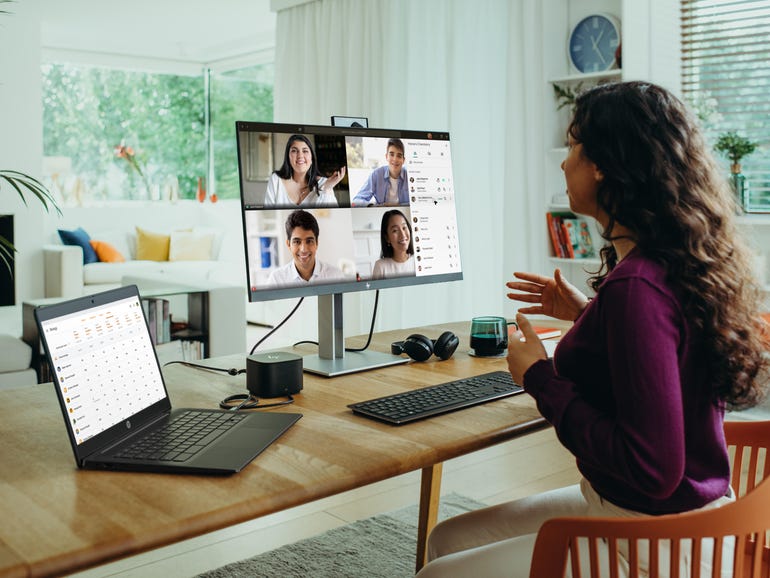- Sony is giving away free 65-inch 4K TVs right now - here's how to qualify for the deal
- Continuous Threat Exposure Management (CTEM): The Future of Vulnerability Assessment
- This smart luggage lock has effectively replaced the AirTag for me when traveling
- Don't make this common Nintendo Switch 2 mistake - this is the microSD card I use
- This clever keychain accessory has made my life so much easier (and it's cheap)
The Chromebook turns 10: Cheap, safe, powerful — and still gaining on Windows | ZDNet

A decade ago, I said the Chromebooks would be Windows PC killers. I got that wrong. But I wasn’t as wrong as you might think. Today, Microsoft is hard at work turning Windows from a standalone PC operating system into a cloud-based Desktop-as-a-Service (DaaS) with its Cloud PC model. Who had that idea first? Who proved that users would accept a cloud-based desktop? That would be Google with the Chrome OS.
Back in the day, I thought Chromebooks would be winners for five reasons. The top of my list was that Chromebooks were far more affordable than Windows PCs. I got that one right. There are lots of great inexpensive Chromebooks for workers, people at home, and students.
Then, the coronavirus pandemic hit. Thanks to the sudden leap in remote work and learning, Chromebook sales exploded. Since then, Chromebooks have accelerated like a SpaceX Falcon 9 rocket. Chromebook demand has boomed for all the top PC makers, Dell, HP, and Lenovo. Indeed, sales data analyst Canalys found Chromebook sales surged by 275% in the first quarter compared to a year ago. In short, Chromebooks have become mainstream. They just took longer than I thought they would.
I also thought Chromebooks would be popular because they’re so easy to use. And that’s still true today. If you can use a web browser, congratulations, you can use a Chromebook. It’s that simple. Chromebooks are the ultimate grab-and-go computer.
That reminds me of another reason I love Chromebooks: You can’t lose data on one. Everyone’s lost important information at one time or another on a Windows box. You can run over a Chromebook with a bulldozer; leave it in a cab never to be seen again in Barcelona; or Junior can feed his school Chromebook a peanut butter and jelly sandwich. You get another Chromebook and all your files and data are back as soon as you’re logged in. Yes, that’s a privacy problem, but short of secure Linux desktops, that’s a problem you have with any modern PC.
In 2011, I also pointed out that thanks to the rise of Software-as-a-Service (SaaS), you already had all the programs you’d ever need for your home use or work. Since then, that’s only become more true. Even Microsoft says SaaS Office 365 “crushes Office 2019.” While there are exceptions, such as video-editing programs, the future of end-user software belongs to SaaS.
When you do need a program to run locally on a Chromebook, besides SaaS programs, Chromebooks now support Android, Linux, and, thanks to Parallels Desktop for Chromebook Enterprise or CodeWeavers’ Crossover Chrome OS, you can even run Windows programs on Chromebooks. In short, Chromebooks offer you the broadest possible selection of programs.
Chromebooks are also the most secure PCs out there. Chrome OS, thanks to its Linux ancestry, was designed for a hostile world filled with network threats. While every week brings a new Windows malware attack, there are still only a handful of Chrome OS security threats.
When I got my hands on the first commercial Chromebook, the Samsung Series 5 with its 12.1-inch display and 1.66Ghz Intel Atom N570 dual-core CPU with 2GBs of RAM, and a 16GB solid-state drive (SSD), I liked it, but I wasn’t tempted to leave my Linux workstations behind.
Since then I’ve used and reviewed about 100 Chromebooks, and I’ve bought almost a dozen. I’ll never stop using high-powered Linux desktops, but after Google released the i7 Pixelbook in 2018, I’ve been sold on using Chromebooks for my laptops. Today, I don’t leave home without my Google Pixelbook Go.
Today, when someone asks for a computer recommendation — unless they’re a power user or programmer — I always recommend Chromebooks. Cheap, powerful, and as safe as houses. Chromebooks may yet outsell Windows laptops. They’re that good.
Related Stories:

